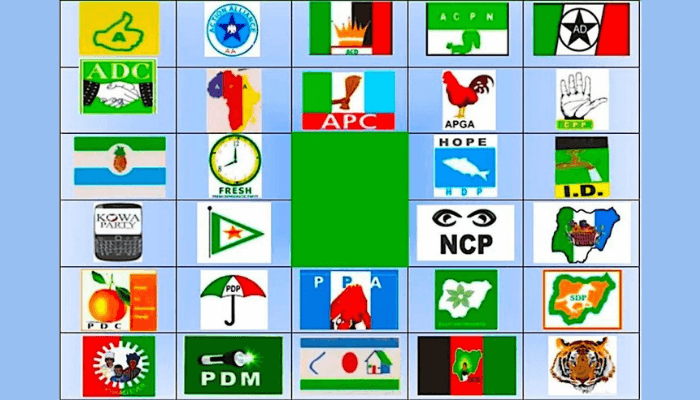A new report assessing Nigeria’s political parties have exposed flaws in internal democracy, inclusivity, and public accountability, revealing a disconnect between howparties perceive themselves and how they are viewed by their members and the public.
The findings are detailed in the latest Political Parties Performance Index (PPPI), unveiled alongside the updated Inter-Party Advisory Council (IPAC) constitution at an event in Abuja.
Developed by the Westminster Foundation for Democracy (WFD), the PPPI provides a data-driven framework for evaluating party performance across key areas including internal democracy, transparency, and responsiveness to citizens.

Adebowale Olorunmola, WFD Nigeria Country Director, while providing highlights from the report noted that while political parties tended to rate themselves highly, assessments by party members and the general public revealed significant gaps.
“On inclusivity, parties gave themselves a score of 82.4%, yet their members rated them at 67.6%, revealing a 15% point gap between perception and reality,” Olorunmola said.
“Similarly, legal compliance was self-rated at 86.4%, while party members put it at 72.4%. Meanwhile, citizens rated public outreach at just 45.9%, the weakest performance across all indicators.”
He emphasised that the launch of the PPPI and the adoption of the revised IPAC constitution marked a critical step towards strengthening internal democracy and accountability within Nigeria’s political landscape.
“These tools are transformative. They go beyond paperwork, they can drive political parties to become more open, responsive, and genuinely representative of the people they serve”- he said.
The revised IPAC constitution is expected to serve as a benchmark for ethical conduct and collective responsibility among Nigeria’s 19 registered political parties.
Yusuf Dantalle, IPAC National chairman, described the constitution as a shared moral compass for parties, particularly those that serve as platforms for elected public officials.
“As political leaders, we are obligated to uphold good governance and prioritise the welfare of the people above personal ambition. Our actions must reflect Section 14 (2)(b) of the 1999 Constitution, which places the wellbeing of the people at the core of governance”, Dantalle stated.
Also speaking at the launch, Kunle Ajayi, National Commissioner at the Independent National Electoral Commission (INEC), criticised political parties for failing to adhere to their own internal regulations.
“Non-compliance with party constitutions is the root cause of many internal crises. This framework is designed to hold parties accountable—both internally and to the public. Political parties must remain visible and active beyond election cycles”, he said
Adding his voice to the discussion, the Minority Leader of the House of Representatives, Kingsley Chinda, identified a lack of political ideology, internal discipline, and long-term vision as core weaknesses of Nigeria’s party system.
He described the PPPI as a strategic instrument aimed at reshaping political behaviour through greater transparency, inclusion, and sustained citizen engagement.
“What we need now is a national dialogue on reforming our political party system. This conversation must look beyond current failings to explore the transformative potential of political institutions”, Chinda stated.
Stay ahead with the latest updates!
Join The Podium Media on WhatsApp for real-time news alerts, breaking stories, and exclusive content delivered straight to your phone. Don’t miss a headline — subscribe now!
Chat with Us on WhatsApp




